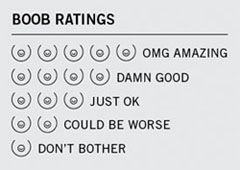Deepa Mehta, the woman behind the Elements film trilogy—Fire, Earth, and Water—directs this adaptation of Salman Rushdie’s 1980 novel, an epic story that deftly combines elements of magical realism, historical fiction, Indian postcolonial literature, and deeply personal family dynamics.
At midnight on August 17, 1947—the very moment of India’s independence from Great Britain—two baby boys are born to two families on opposite sides of the economic spectrum, and are swapped by a nurse wishing to make a political statement. Saleem, born to the family in poverty, is raised in wealth; Shiva, the would-be son of the rich family, is reared by a newly widowed father, a poor street musician. Saleem and Shiva, it turns out, along with hundreds of other Indian children born at the same time as they, are imbued with special powers—one can fly, one is a witch, and one can time travel. Shiva’s power lies in his ability to fight. Saleem’s lies in his ability to bring all of these freaky kids together. In dream-like meetings, the diverse gang of “Midnight’s Children” first embodies divisions across culture, class, and politics, but as the story unfolds, it reveals where unity has the potential to be restored.
Through its magical elements, the film raises questions about what constitutes an individual, a family, a country, and ultimately, our very humanity. Rushdie, who also wrote the screenplay, narrates the film, and provides Mehta with a lush canvas on which to display her artistry as a filmmaker.

By Anna Bean

 This review appears in the Apr/May 2013 issue of BUST Magazine with cover girl Grimes. Subscribe now.
This review appears in the Apr/May 2013 issue of BUST Magazine with cover girl Grimes. Subscribe now.


